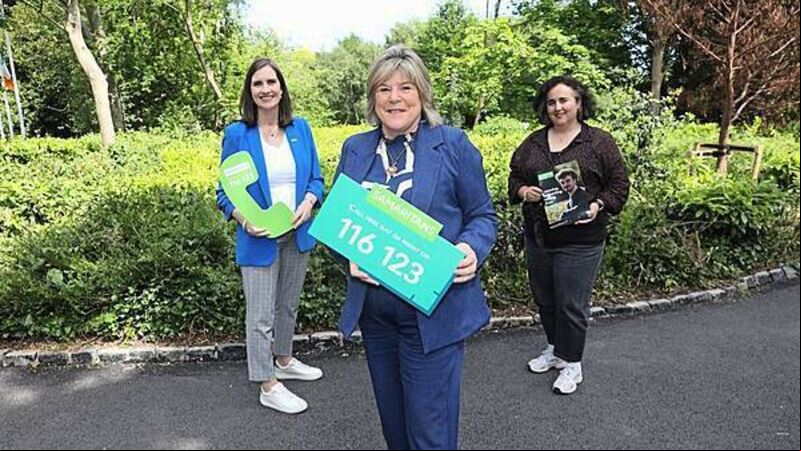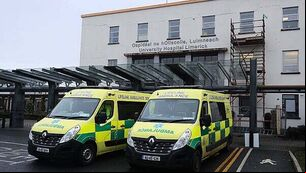Samaritans volunteers answer 50 calls an hour, research shows

Ellen O'Donoghue
Samaritans volunteers answered 50 calls every hour last year, new research has revealed.
The Samaritans Ireland Impact Report for 2024 also said that the service is the only form of for over half of callers.
It said that volunteers provided 100,000 hours of to callers during the year, providing a lifeline to people who were struggling to cope.
The 2024 Impact Report also highlighted that, in Ireland, volunteers responded to 470,000 calls, answering around 1,200 every day.
The most frequently raised concerns related to mental health or illness, isolation and loneliness and family problems.
Multiple issues can be raised in one call, the charity added.
Emotional calls lasted on average 28 minutes, the report added.
6,800 calls were diverted to Samaritans from five other helplines when they were closed.
Sarah O'Toole, executive director for Samaritans Ireland, said at the launch of the report that Samaritans' vision is that fewer people die by suicide.
"Our volunteers create a safe space for human connection that can often be life-saving. In the quiet moments of human struggle, a listening ear can be the difference between despair and hope," Ms O'Toole said.
Samaritans also launched the results of its first caller experience research, Understanding Our Callers in Ireland, which surveyed almost 600 people.
The research on caller's experience of using the helpline, carried out by University College Cork, found high satisfaction levels with Samaritans service.
It also showed that Samaritans was the only form of for 56 per cent of those surveyed.
Funded by the HSE's National Office of Suicide Prevention, it revealed that 84 per cent felt that Samaritans provided a safe space for them, 79 per cent felt genuinely listened to, and 73 per cent reported feeling ed by the Samaritans service.
Ms O'Toole called the results heartening and said they reaffirmed the key role of Samaritans in Ireland's mental health landscape.
“We know we are often a lifeline and the only for people who are lonely or feeling isolated, people who are struggling with the pressures of day-to-day life, and people who are in crisis. Now, this new research confirms that.
“One caller described Samaritans an ‘emotional ambulance’, while another said: ‘I wouldn’t be standing here today only for them’," she added.
“This study reaffirms Samaritans’ profound impact on our callers, with an overwhelming majority reporting a positive experience with our service.”
Minister for Mental Health, Mary Butler TD, said that she does not doubt that voluntary organisations like Samaritans have played a "key role" in the "significant reduction in the rate of suicide and self-harm" by acting as a lifeline for many.









